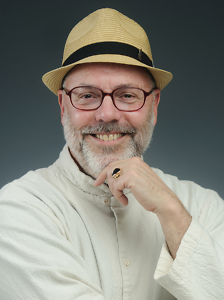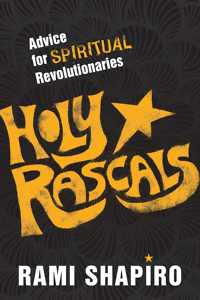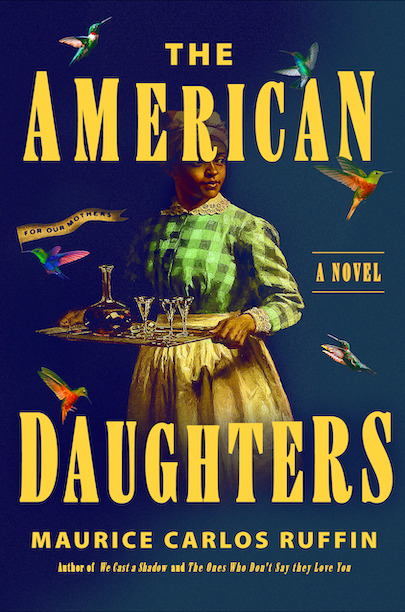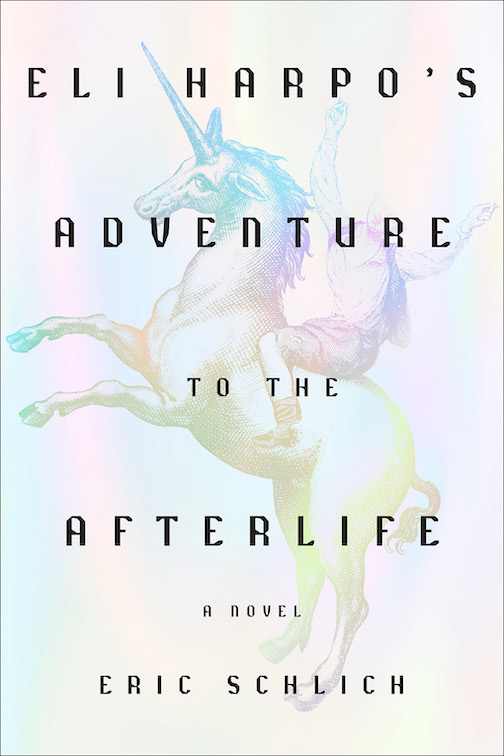Hacking Religion
Humor and wit are the most sacred virtues in Rami Shapiro’s Holy Rascals
“God is real. Everything we say about God is made up,” writes Rami Shapiro in his new book, Holy Rascals: Advice for Spiritual Revolutionaries, a manifesto for the spiritual-but-not-religious person, a position which he aptly re-brands not as spirituality but as a “brand-less” religiosity.
 Shapiro has served as a rabbi in a Reconstructionist congregation in Florida, taught religion at Middle Tennessee State University in Murfreesboro, and now directs the One River Foundation, a lifelong-learning program with offerings in multi-faith mysticism and nondualist philosophy. He is also a prolific author, with more than two dozen nonfiction books to his credit.
Shapiro has served as a rabbi in a Reconstructionist congregation in Florida, taught religion at Middle Tennessee State University in Murfreesboro, and now directs the One River Foundation, a lifelong-learning program with offerings in multi-faith mysticism and nondualist philosophy. He is also a prolific author, with more than two dozen nonfiction books to his credit.
In a career spanning thirty years, Shapiro has argued that religions are languages and that religiosity is “the innate, ancient, and ongoing human capacity for meaning making.” Religion, he writes, is rooted in beliefs taught to us. Religion preserves the past. Religiosity, the stance of “holy rascals,” begins in curiosity. Religiosity opens up the present for future evolution. Holy rascals don’t fight religion so much as aim to help believers develop a sense of humor about what we think we know and what we think others should know, too.
Shapiro is a spiritual provocateur, a lineage that extends back to Jesus, Elijah, and the prophets.
His critiques of institutional religion are delivered in the brashest way, but his wisdom is ancient. His arguments in non-dualism (God is everywhere; everything is in God) draw on mystics across many world religions, from the thirteenth-century Kabbalist Abraham Abulafia to the twentieth-century French philosopher Simone Weil to his own contemporaries in Zen Buddhism and Sufism.
“But little if anything is fact,” he proclaims with the joking self-deprecation that colors every page. Delivered in one-page reflections with bold-print pull-quotes saturated with irony and humor, Holy Rascals is not so much a book as a collection of notecards for a comedian’s set or guru’s master class. Shapiro’s prose is clear and pointed, his philosophy profound and punctuated. Some notable Rami-isms:
“If your faith leaves no room for doubt, you can be certain you are a prisoner of belief.”
“The problem isn’t that religion is made up; the problem is that religions can’t admit they are made up.”
 “The true enemies of one religion aren’t those of another religion, or even those with no religion, but those within the religion who use it for their own ends.”
“The true enemies of one religion aren’t those of another religion, or even those with no religion, but those within the religion who use it for their own ends.”
Shapiro, who grew up in an Orthodox Jewish home, studied Judaism, Hasidism, Zen Buddhism, and Hinduism at the feet of masters. As a spiritual teacher, he is a guide of great intellect, but ultimately he does not allow his readers to stay safely cocooned in their own beliefs. Shapiro is not leading a congregation or fostering a community of care. He is not inspiring a spiritual movement. His goal is to disrupt old patterns of belonging.
Shapiro denounces the “Brand-name Gods” and the salespeople (mainly clergy) who profit from these brands. But his skepticism may be applied to any brand, even his own nascent brand, which argues that the only real truth is one that “leads you to living life more justly and compassionately.” And Shapiro does at times turn the truth-telling lens on his own brand of religiosity: “There are two traps into which holy rascals fall: we forget to be holy or we forget to be rascals,” he writes. “Forgetting to be holy, we are mean. Forgetting to be rascals, we are meaningless.”
For Shapiro, holy rascals employ humor and wit to bash the idols of our self-made gods. But the book raises some questions, too. Is there truly a “brand-less religiosity?” Can holiness, justice, and compassion exist without a sense of belonging? Holy rascals are essential to the evolution of religions and the expansion of human compassion, but so surely are the shopkeepers of any religion, who are willing to make a house-call or host a funeral.

Beth Waltemath graduated with a degree in English from the University of Virginia and worked at both Random House and Hearst magazines before leaving publishing to attend Union Theological Seminary in New York City. A Nashville native, she now lives in Decatur, Georgia.


